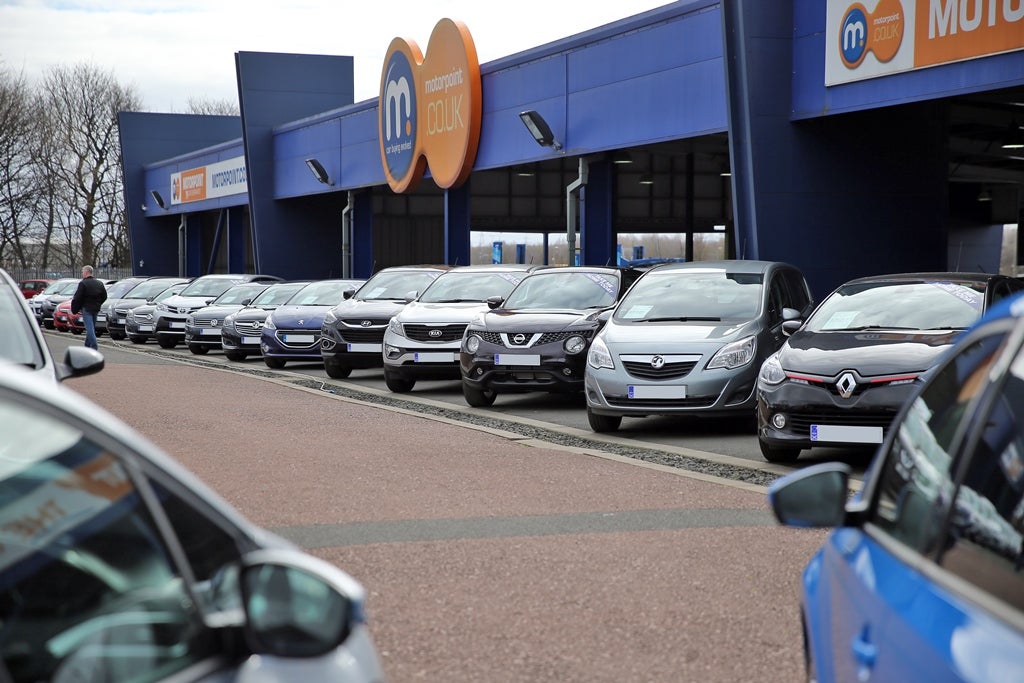From Ford Fiesta to Infiniti and beyond: winners and losers in the new car market
Ford’s crown sits precariously on the head of the market leader, as 2019 saw budget rivals increase their appeal. However, warns Sean O’Grady, a rocky 12 months is not going to see fortunes improved as Brexit rears its ugly head

Even in a gloomy, depressed new car market suffering its third successive year of shrinkage (and looking forward to another fall this year), well, there are winners. The Society of Motor Manufacturers and Traders has produced its equivalent of the Golden Globes, so it is time to recognise outstanding achievement…
Perhaps some are predictable, other less so. With consumer confidence at a low ebb, and take-home pay still growing relatively modestly, it is perhaps natural that some of the more value-driven brands would do well, and so it has proved. Of the mainstream car makes, it is MG (now a Chinese-owned manufacturer) and Dacia (the budget end of the Renault group) who have made the most impressive progress. MG is up by almost a half (45.5 per cent) in 2019 over 2018, while Dacia has pushed its sales up 28 per cent, and Kia, another value-for-money make, did well to grow sales by 1.6 per cent in a market that fell overall by 2.37 per cent.
Britain’s best sellers in 2019
1. Ford Fiesta (77,833)
2. VW Golf (58,994)
3. Ford Focus (56,619)
4. Vauxhall Corsa (54,239)
5. Mercedes-Benz A-Class (53,724)
6. Nissan Qashqai (52,532)
7. Ford Kuga (41,671)
8. Mini (41,188)
9. VW Polo (37,453)
10. Kia Sportage (34,502)
MG would have been helped by some keen pricing, the relatively popularity of its compact SUV, the ZS (now with all-electric battery powered option), while Dacia continues to grow in some contrast to its sibling brands Renault (down 4 per cent) and Nissan (a 10 per cent drop). However, attractive new models have also helped Lexus (+28 per cent), Porsche (+22.7 per cent), Volvo (+11.7 per cent) and Seat (+9.4 per cent) keep up their recent momentum. Lexus and its parent brand Toyota will also have benefited from their prominent positioning in the petrol-electric hybrid sector, which saw another strong year in 2019 as more customers moved away from diesel.
Other makes have fared less well – Ford, for example. A couple of decades ago the blue oval dominated British cars sales. In the early 1980s about one in three new cars sold in the UK was a Ford; and a decade ago it still commanded 15.9 per cent of the market. In 2019 it was down to 10.7 per cent, and in December 2019 it hit 10.1 per cent. By comparison, BMW is now (December 2019) on 9.5 per cent. The Ford Fiesta remains the nation’s best-selling car, with 77,833 finding new British buyers, accounting for fully 30 per cent of all Ford sales.
And there were other losers. The biggest drop was for Infiniti, the premium arm of Nissan that has enjoyed success elsewhere in the world. It has already said it is withdrawing from the UK, with sales down 61 per cent to just 750 units in the year. Not far behind trailed Smart (-47.3 per cent), Alfa Romeo (-18 per cent) and Fiat (-16 per cent). Mitsubishi fell by 23.4 per cent after after the the government cut subsidies for plug-in hybrid vehicles, which it relies on for a significant proportion of sales of its SUVs.
More worrying perhaps for car buyers post-Brexit – 2021 and beyond – is that car companies selling larger vehicles in the UK will no longer be able to offset sales for smaller models elsewhere in the EU to get their emissions down. If the current 98 grammes of CO2 per kilometre of distance travelled is transposed from EU law to UK law, as planned, then some brands will face swingeing fines for failing to meet the target – some £83 per gramme/km by which a make falls short. This would either mean far higher list prices of vehicles (which buyers would refuse to bear), or the withdrawal of certain models from sale – probably the more powerful, higher CO2-emitting petrol cars – hot hatches such as the VW Gold GTI. Alternatively the government could decide to relax the 95g/km emissions target, but then might find some opposition from the EU if it feels that UK-based firms (such as Jaguar Land Rover) were somehow gaining an unfair advantage.
So, signs of hope – especially the soaring demand for electric cars – but the hard road for the car trade look set to continue.
Subscribe to Independent Premium to bookmark this article
Want to bookmark your favourite articles and stories to read or reference later? Start your Independent Premium subscription today.

Join our commenting forum
Join thought-provoking conversations, follow other Independent readers and see their replies